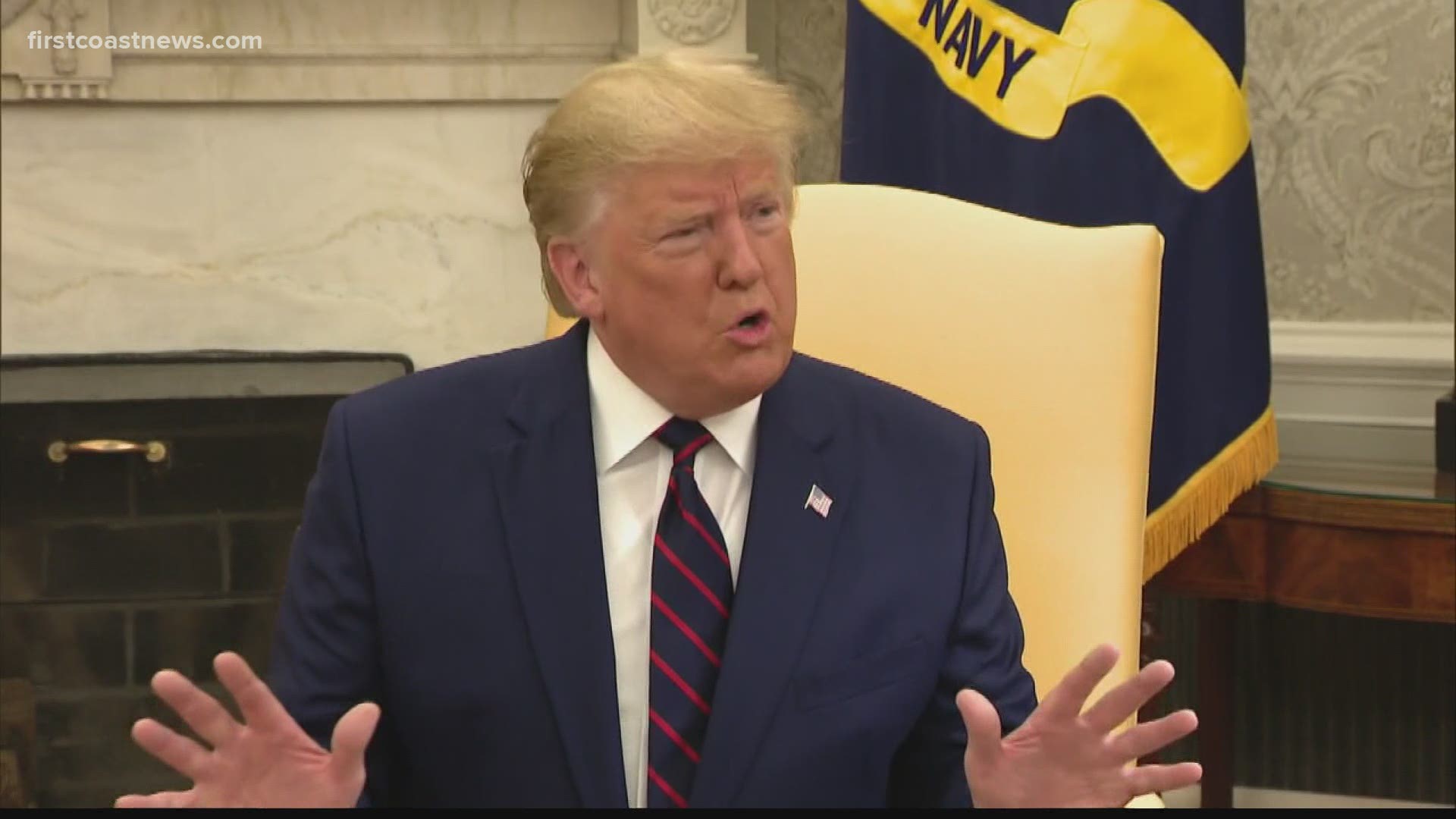JACKSONVILLE, Fla. — The 25th Amendment has been invoked for presidents who are incapacitated or in surgery – but never for one deemed mentally incapable of performing his duties.
“It’s unprecedented,” says Jacksonville Constitutional lawyer Bryan Gowdy. “I don't know of any time where people have wondered whether the President is delusional."
The language of the amendment allows for that interpretation, however. “It just says inability, it doesn't say physical inability. So I think the fair reading of the text would that would include a mental inability.”
That dynamic means if the Vice President were to invoke the 25th Amendment, he would be doing so on an unwilling President.
“It's never been used without the President's consent,” Gowdy says. "This would be the Vice President having to force the president to surrender power.”
The 25th amendment does not make removing a president easy, requiring the support of not only the Vice President and a majority of the cabinet but two-thirds of both chambers of Congress.
“It is a high bar -- it should be a high bar,” says Gowdy. “Keep in mind, the other similar power out there is the is the power of impeachment. …That requires a majority of the House to impeach, and a two-thirds vote in the Senate to remove. … I think when they did this, formulating the 25th amendment back in 1967, they looked at those precedents within our own Constitution.”
If that bar were met, he says, it would mean the president’s resistance to a peaceful transfer of power led to an involuntary one.
“I think it's a difficult decision for the Vice President and the cabinet. But obviously, the events of yesterday, I'm sure have caused everyone to consider whether this is necessary," he said.
.

